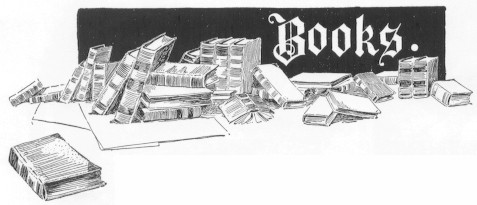The End of Books
Today we ask, "What'll become of books?" The University of Houston's College of Engineering presents this series about the machines that make our civilization run, and the people whose ingenuity created them.
One question I'm asked more than any other is, "Will the computer replace the book?" At first I flatly said, "No! The book is too perfect a technology to be replaced."
Then I began waffling. "Well, maybe paper books eventually will give way to small, hand-held, thumb-operated computers with many books stored in them."
I recently saw such a book. It was gathering dust in a computer store. It was bulky and primitive. It cost far too much. The supply of texts was miserable. So was the screen. Still, this was the stalking-horse of real change.
So far, resolution is far worse for computer screens than it is for paper. Subliminal flicker also makes screens harder to read. But we'll solve those problems. We'll improve data storage and miniaturization to boot. Electronic books will be more efficient than paper books soon enough.
So, are paper books doomed? Oddly enough, they're not. Think about pianos. Pianos evolved from harpsichord improvements. But soon they were something wholly different. You still need a harpsichord for harpsichord music. In this century, cars replaced horses. But cars aren't much use in rough, roadless country.
Many technologies survive their replacements that way. Live concerts have survived recordings. Pens survive word processors.
Electronic books will soon have features you never imagined in paper books. They'll have colored pictures that move, spoken words, and background music. And that's just the beginning.
Computer books will invite reader participation. Press a button to look up a word or read a source reference -- right on screen. Straight-through story lines will give way to mosaic elements that readers can manipulate. We're already seeing variable story lines in the fancier computer games.
As we abandon the limitations of the paper book, the electronic book will become unrecognizably different. It'll become so different that the paper book will have to survive, after all.
And it'll be more than an antiquarian delight. Like the horse or the harpsichord, paper books will keep right on doing what they've always done so well. They take you into the author's mind. You give yourself over to her story-telling rhythm. Your own mind frames the pictures and plays the music. You feel organic cloth and paper under your fingers.
Once they come, electronic books will have about as much in common with paper books as the horseless carriage has in common with the horse. They'll be so different from the books we know that they cannot replace them.
I'm John Lienhard, at the University of Houston, where we're interested in the way inventive minds work.
(Theme music)
Kurzweil, R., The Future of Libraries, Part 1: The Technology of the Book; Part 2: The End of Books; Part 3: The Virtual Library. Library Journal, January 1992, pp. 80, 82; February 15, 1992, pp. 140-141; March 15, 1992, pp. 63-64.
Coover, R., The End of Books. The New York Times Book Review, June 21, 1992, pp. 11, 23-25.
I am grateful to Judy Myers, University of Houston Library, for the Kurzweil articles and for ongoing discussions about books and their potential for Darwinian survival.
For more on the future of books, see Episode 877.

clipart